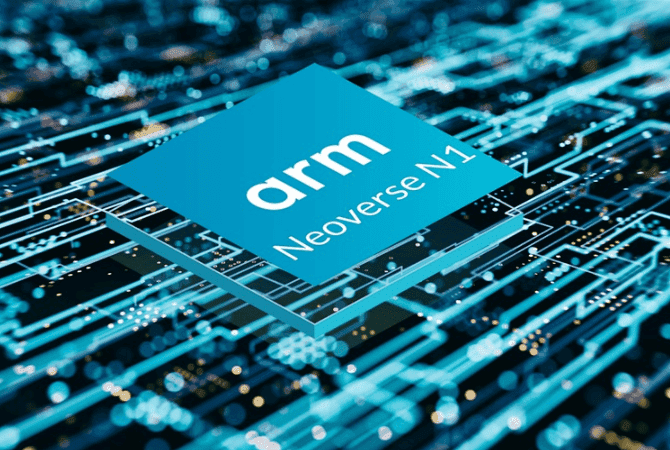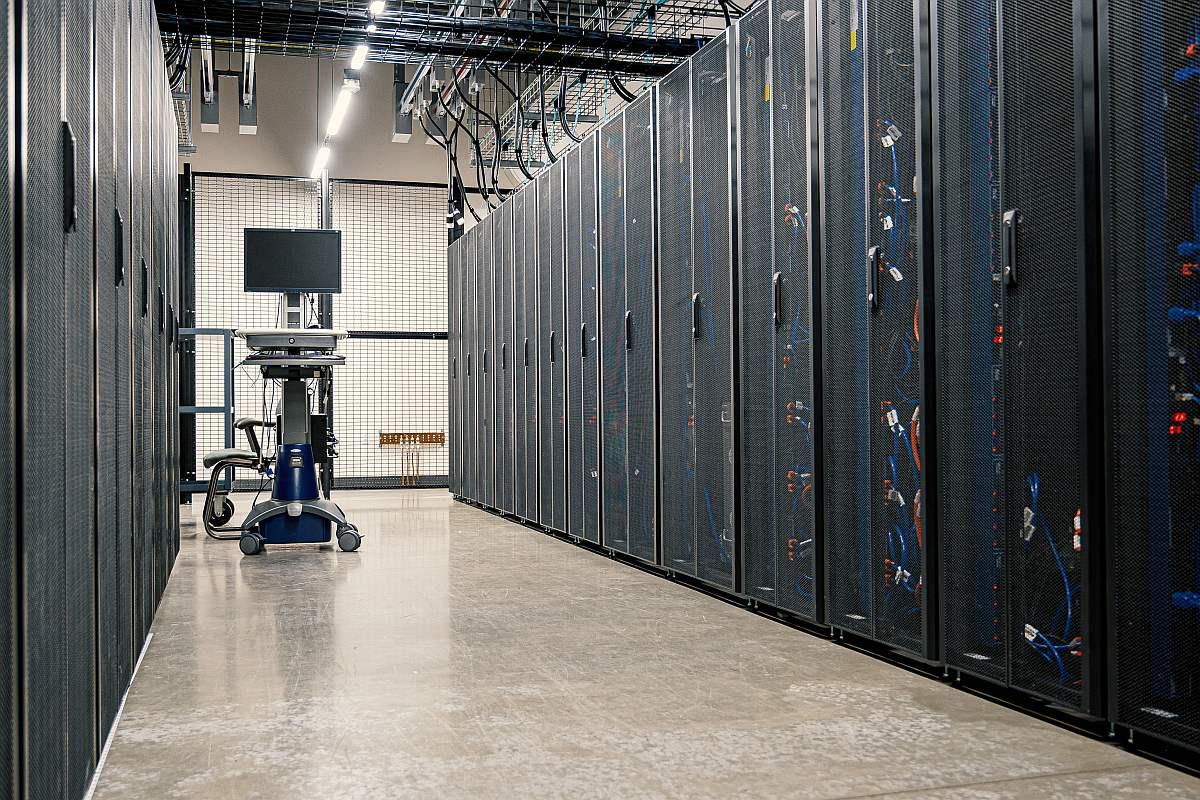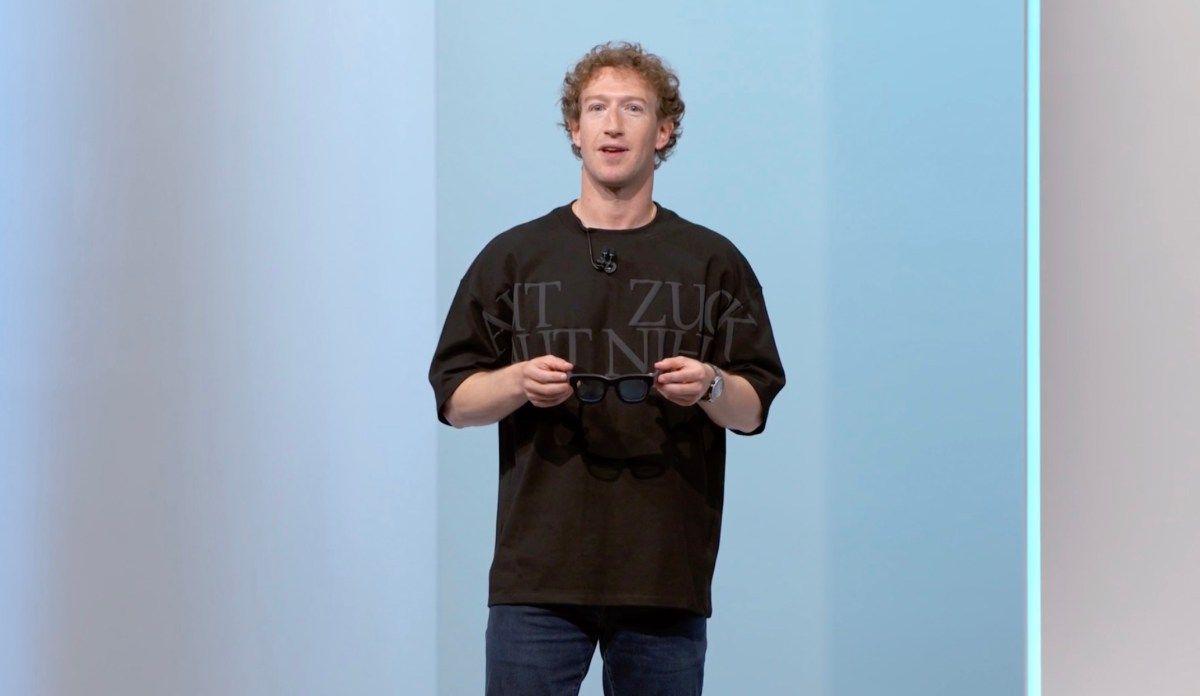Meta Partners with Arm to Scale AI Efforts, Boosting Efficiency and Performance
7 Sources
7 Sources
[1]
Meta partners up with Arm to scale AI efforts | TechCrunch
Semiconductor design company Arm is partnering up with Meta to enhance the social media giant's AI systems amid an unprecedented infrastructure buildout. Under the partnership, Meta's ranking and recommendation systems will move to Arm's Neoverse platform, which was recently optimized for AI systems in the cloud, among other implementations. "AI is transforming how people connect and create," Santosh Janardhan, Meta's head of infrastructure, said in a statement. "Partnering with Arm enables us to efficiently scale that innovation to the more than 3 billion people who use Meta's apps and technologies." Best known for its mobile CPU architecture, Arm's GPU offerings have often been overshadowed by competitors like Nvidia. But Arm is now emphasizing its advantage in low-power deployments. "AI's next era will be defined by delivering efficiency at scale," Rene Haas, Arm's CEO, said in a statement. "Partnering with Meta, we're uniting Arm's performance-per-watt leadership with Meta's AI innovation." The multi-year partnership comes as Meta invests in vastly expanding its data center network to keep pace with anticipated demand for AI services. One project, code-named "Prometheus," is expected to come online with multiple gigawatts of power in 2027. Construction is currently underway in New Albany, Ohio, and a 200-megawatt natural gas project is being constructed to directly serve the project's power needs. Meta is also building a data center campus, code-named "Hyperion," across 2,250 acres in northwest Louisiana that's meant to deliver 5 gigawatts of computational power when complete. Construction is expected to continue through 2030, although some portions may come online before then. Crucially, Arm and Meta are not exchanging ownership stakes or significant physical infrastructure, setting this partnership apart from a number of recent AI infrastructure deals. Nvidia has been particularly aggressive with its investments -- it recently committed to a $100 billion phased investment into OpenAI, as well as billion-dollar investments into Elon Musk's xAI, Mira Murati's Thinking Machines Lab, and French AI lab Mistral. A rival to both Nvidia and Arm, AMD recently committed to supplying OpenAI with 6 gigawatts worth of compute capacity. As part of the deal, OpenAI will receive AMD stock options worth as much as 10% of the company.
[2]
Meta and Arm partner to optimize AI software for Nvidia CPUs
Meta on Wednesday entered into a partnership with Arm Holdings with the aim of helping its software run more efficiently on the British chip designer's CPUs. The tie-up signals that Arm will also play a bigger role in the datacenters of Facebook and Instagram's parent company, though not necessarily in the way you might expect. Rather than a custom Arm CPU, like the ones that Microsoft, AWS, and Google designed, Meta tells us the partnership will focus on optimizing the Arm-based silicon that it's already deploying. Like most hyperscalers and cloud providers, Meta is rolling out large quantities of Arm Neoverse cores across its AI datacenters; they just happen to be part of Nvidia's GB200 or GB300 NVL72 rack systems. Each of these racks is equipped with 72 Blackwell GPUs and 36 of Nvidia's Neoverse-V2-based Grace CPUs. "Meta's AI ranking and recommendation systems - which power discovery and personalization across Meta's family of apps, including Facebook and Instagram - will leverage Arm's Neoverse-based datacenter platforms to deliver higher performance and lower power consumption compared to x86 systems," the release reads. The move from x86 boxes to Nvidia's rack systems presents an opportunity for Arm and Meta to optimize existing codebases and frameworks, like PyTorch or Facebook General Matrix Multiplication (FBGEMM) libraries, to take better advantage of the RISC architecture's extensions. This includes things like transitioning workloads that previously relied on Intel or AMD AVX2 or AVX-512 to take advantage of modern Arm vector extensions or optimizing PyTorch code to utilize features like ExecuTorch or Arm's KleidiAI platforms. Adoption of Nvidia's Grace-Blackwell systems has driven a surge in Arm's datacenter market share. A recent Dell'Oro report estimated that Arm CPUs accounted for 25 percent of the datacenter CPU market in Q2. A year ago, that share hovered around 15 percent, with adoption by major cloud providers its biggest driver. As of 2025, nearly every major US cloud company is renting virtual machines and services powered by custom Arm processors. AWS has Graviton, Google Axion, and Microsoft Cobalt. Oracle, meanwhile, continues to deploy Arm-based CPUs from Ampere Computing. As it so happens, on Wednesday, Oracle announced the availability of yet more instances based on the chip vendor's AmpereOne processors. Given Meta's scale, it would seem like the next obvious candidate for a custom cloud CPU. The company already deploys a number of custom chips for things like video transcoding, as well as its MTIA line of machine learning accelerators, which power its ad recommendation systems. However, at least for the moment, it doesn't seem a custom Arm CPU is in Meta's future. Or if it is, the company isn't ready to talk about it. ®
[3]
Meta Platforms to use Arm's energy-efficient Neoverse GPUs for some AI workloads - SiliconANGLE
Meta Platforms to use Arm's energy-efficient Neoverse GPUs for some AI workloads Meta Platforms Inc. said today it's working with the British chip designer Arm Holdings Plc and will use its processors to help scale the artificial intelligence systems that drive some of the personalization features on applications such as Facebook and Instagram. The social media giant's AI-based search ranking and recommendation systems will both be powered by Arm's Neoverse platform in future. Neoverse was recently optimized by Arm to run AI systems in the cloud. The deal is seen as another key validation of Arm's chip technology for AI workloads. The Softbank Group Corp.-backed company primarily competes with Intel Corp. and Advanced Micro Devices Inc. in the personal computer and data center server markets. Its central processing unit designs also power the vast majority of the world's smartphones and tablets, but its presence in the AI industry is much smaller. Arm also designs graphics processing units for AI workloads, but these have long been overshadowed by Nvidia Corp.'s GPUs, which provide a great deal more computing power. However, Meta's head of infrastructure Santosh Janardhan emphasized that Arm's GPUs provide advantages in terms of their power efficiency. "Partnering with Arm enables us to efficiently scale our AI innovation to the more than three billion people who use Meta's apps and technologies," he said. In their statement announcing the partnership, the companies explained that they have collaborated with one another to adapt Meta's AI infrastructure software to run more efficiently on Arm's chip designs. These software improvements have been made open-source, so that other companies can implement the same changes. This could help more companies switch their AI applications to Arm-based systems. Arm Chief Executive Rene Haas said companies can benefit from his company's chip architecture because the next era of AI will be defined by systems that can scale more efficiently. "We're uniting Arm's performance-per-watt leadership with Meta's AI innovation," he added. Meta's multiyear partnership with Arm comes as it continues its efforts to expand its data center network to meet anticipated demand for its AI services. It announced it's working on a number of new U.S. projects. For instance, it's currently building a data center project known as "Prometheus" in New Albany, Ohio, which is expected to bring multiple gigawatts of computing power online by 2027. It's also working on a 200-megawatt natural gas project nearby, which will provide much of the energy that data center needs. Elsewhere, Meta said it's building a data center campus called "Hyperion" that spans a 2,250 acre site in northwest Louisiana. It will deliver around five gigawatts of computational power when it's up and running. Meta said it expects construction to be completed by 2030, though some parts of the facility may come online earlier than that. In addition, Meta is also planning to invest $1.5 billion in a new Texas-based data center facility, which will be its 29th globally.
[4]
Arm and Meta team up to power next-gen AI systems on Neoverse chips
The deal highlights Arm's push into data-center and AI applications beyond mobile chips. Meta says the partnership will help scale AI innovations efficiently to more than 3 billion users. Semiconductor design company Arm is partnering with Meta to enhance the social media company's AI systems. The agreement involves moving Meta's ranking and recommendation systems onto Arm's Neoverse platform, which has been recently updated for AI workloads in the cloud. Santosh Janardhan, Meta's head of infrastructure, stated, "AI is transforming how people connect and create. Partnering with Arm enables us to efficiently scale that innovation to the more than 3 billion people who use Meta's apps and technologies." While known for its mobile CPU architecture, Arm is now emphasizing its capabilities in low-power deployments. Rene Haas, Arm's CEO, noted the partnership unites "Arm's performance-per-watt leadership with Meta's AI innovation." Haas added, "AI's next era will be defined by delivering efficiency at scale." This multi-year partnership occurs as Meta invests in a vast expansion of its data center network to accommodate the anticipated demand for AI services. One of these initiatives, a project codenamed "Prometheus," is currently under construction in New Albany, Ohio. This facility is slated to come online in 2027 with a capacity of multiple gigawatts of power. A 200-megawatt natural-gas project is being constructed to directly supply the power needs of the Prometheus site. In addition, Meta is building another large data center campus, codenamed "Hyperion," across a 2,250-acre area in northwest Louisiana. This campus is designed to deliver a total of 5 gigawatts of computational power when fully complete. The construction schedule is expected to continue through 2030, although some portions of the campus are anticipated to become operational before that final date. The agreement between Arm and Meta does not include an exchange of ownership stakes or significant physical infrastructure. This arrangement differs from several other recent AI infrastructure deals. Nvidia, for instance, has committed to a $100 billion phased investment into OpenAI. The company has also directed multi-billion-dollar investments toward other AI firms, including Elon Musk's xAI, Mira Murati's Thinking Machines Lab, and the French AI lab Mistral.
[5]
Meta and Arm Are Teaming Up to Make AI Faster and More Power-Efficient
Meta says the deal will help it scale AI to more than 3 billion users Meta and Arm announced a multi-year partnership to make artificial intelligence (AI) systems faster and more energy-efficient across the former's global platforms. The collaboration aims to optimise AI performance not just in data centres but also on smaller, low-power devices. By combining Arm's expertise in power-efficient chip designs with Meta's experience in AI infrastructure and open-source software, the companies plan to scale AI capabilities for billions of users worldwide. The partnership follows the recently announced OpenAI-AMD deal, which is also centred around scaling AI infrastructure. Meta, Arm to Jointly Develop AI Hardware and Software In a newsroom post, Arm announced and shared details about the new partnership. The deal brings together two entities that are operating on opposite ends of the AI spectrum. Meta's platforms, such as Facebook, Instagram, and its Meta AI app, rely heavily on AI to recommend posts, suggest friends, and power new tools like chatbots and image filters. All of this requires huge amounts of computing power. Similarly, Arm's chip designs are used in a large number of smartphones today, and the company is known for creating processors that deliver strong performance while being energy-efficient. With this collaboration, Meta will use Arm's Neoverse chips in its massive data centres to train and run AI models. These chips promise similar performance to traditional Intel or AMD processors but with much lower energy consumption. That means Meta could cut both its electricity use and costs, while speeding up how quickly its AI systems learn and respond. The partnership is not just about hardware. Meta's open-source AI tools, such as PyTorch (used to train AI models) and ExecuTorch (used to run AI on devices), are now being optimised to work more efficiently with Arm chips. These improvements will make AI models faster and more power-efficient, whether they're running in the cloud or directly on a phone. For instance, Arm's new KleidiAI technology helps AI models run better on small, battery-powered devices. This means features like voice assistants, filters, or image recognition could become quicker and less demanding on your phone's battery. Both companies said these upgrades will be shared with the global developer community, so others can build more efficient AI apps too. Meta says the partnership with Arm will help it scale AI to more than three billion users across its platforms. For Arm, it's another step toward expanding beyond smartphones into the powerful computers and servers that run modern AI systems.
[6]
Meta taps Arm Holdings to power AI recommendations across Facebook, Instagram - The Economic Times
The social media giant will use Arm-based data center platforms to power its AI ranking and recommendation systems, which are key to discovery and personalisation across its apps.Meta Platforms said it is partnering with chip tech provider Arm Holdings to power the systems that drive personalisation across its apps, including Facebook and Instagram, as companies rush to upgrade the chip technology underpinning their services. The social media giant will use Arm-based data center platforms to power its AI ranking and recommendation systems, which are key to discovery and personalisation across its apps. A deal with Meta would mark another major validation of Arm's technology as the SoftBank‑backed company competes with the entrenched x86 architecture used by Intel and AMD. Arm provides chip architecture that serves as a blueprint for what a central processing unit can do and which applications it can run. The companies said the Arm‑based approach promises higher performance and lower power use than x86 systems. While Arm-based chips already power a large portion of the world's smartphones, they are quickly gaining traction in Intel and AMD's core markets - personal computers and server CPUs. Separately, Meta said it will invest $1.5 billion in a Texas data center, breaking ground on its 29th facility globally as it expands infrastructure for artificial intelligence workloads. The companies said they have worked together to adapt Meta's AI infrastructure software for Arm architectures, making the software improvements open source and freely available for anyone to use. The open-source effort could boost adoption of Arm-based architecture by improving software compatibility, a key hurdle to wider use. Meta and Arm said they plan to keep adding improvements to these open-source projects.
[7]
Meta Taps Arm To Power AI Across Devices And The Cloud - Meta Platforms (NASDAQ:META), ARM Holdings (NASDAQ:ARM)
British chip designer Arm Holdings PLC (NASDAQ:ARM) and Meta Platforms Inc. (NASDAQ:META) collaborated to scale artificial intelligence efficiency across all compute layers, from AI software to data center infrastructure. The partnership spans milliwatt-scale devices, powering on-device intelligence, to megawatt-scale systems that train advanced AI models, enabling AI across Meta's global platforms. Building on ongoing hardware and software co-design efforts, the multi-year partnership combines Arm's AI compute leadership with Meta's AI product, infrastructure, and open-technology expertise to achieve significant performance and efficiency gains. Also Read: Arm Holdings Rides AI Boom But Faces Near-Term Risks, Analyst Say Meta will leverage Arm's Neoverse-based data center platforms to power AI ranking and recommendation systems across Facebook, Instagram, and other apps, boosting performance and lowering power consumption compared with x86 systems. The companies optimized Meta's AI software stack -- including compilers, libraries, and major AI frameworks -- for Arm architectures, tuning open-source components like Facebook General Matrix Multiplication (FBGEMM) and PyTorch to exploit Arm's vector extensions and performance libraries. Arm stock gained over 38% year-to-date backed by the AI frenzy including reports of potential collaborations with OpenAI and Broadcom Inc. (NASDAQ:AVGO). Meta is up over 22% driven by its AI pivot, including upcoming AI and metaverse-related announcements at its Connect conference. Price Actions: ARM stock is trading higher by 1.23% to $170.22 at last check Wednesday. Meta Platforms stock is up 0.93%. Read Next: Meta, Ray-Ban Target 10 Million AI Glass Production By 2026 Photo: Who is Danny/Shutterstock ARMARM Holdings PLC$170.181.20%OverviewMETAMeta Platforms Inc$716.841.16%AVGOBroadcom Inc$353.732.79%Market News and Data brought to you by Benzinga APIs
Share
Share
Copy Link
Meta and Arm announce a multi-year partnership to enhance AI systems, focusing on energy efficiency and performance. The collaboration aims to optimize Meta's AI infrastructure using Arm's Neoverse platform, potentially revolutionizing AI deployment across Meta's apps.
Meta and Arm Collaborate for AI Efficiency
Meta Platforms Inc. has announced a multi-year partnership with British chip designer Arm Holdings Plc to significantly enhance its AI systems. This collaboration aims to boost energy efficiency and performance across Meta's global platforms, addressing the escalating computational demands of advanced AI applications
1
.
Source: The Register
Neoverse Powers Core AI Workloads
Central to this alliance is the integration of Arm's Neoverse platform into Meta's core AI infrastructure. Meta's crucial ranking and recommendation systems, driving discovery and personalization across its apps like Facebook and Instagram, will transition to Neoverse architecture. This shift is expected to deliver superior performance with lower power consumption compared to x86 systems, promoting more sustainable AI operations
2
.
Source: SiliconANGLE
Open-Source Optimization for Scale
Beyond hardware, Meta and Arm will optimize Meta's AI infrastructure software for Arm's chip designs. These software enhancements will be open-sourced, benefiting a wider ecosystem and aiding other companies adopting Arm-based AI applications. Santosh Janardhan, Meta's head of infrastructure, emphasized this partnership is vital for efficiently scaling AI innovations to Meta's 3 billion-plus users, transforming how people connect and create
3
4
.Related Stories
Industry Impact and Future Vision
This collaboration validates Arm's technology for demanding AI workloads, expanding its influence beyond mobile CPUs. Meta's substantial data center investments, like "Prometheus" and "Hyperion," highlight a commitment to efficient AI solutions. Both companies stress that the next AI era demands efficiency at scale, potentially setting new industry benchmarks for balancing computational power with energy consumption
1
5
.
Source: Gadgets 360
References
Summarized by
Navi
[2]
[3]
Related Stories
Recent Highlights
1
Pentagon threatens to cut Anthropic's $200M contract over AI safety restrictions in military ops
Policy and Regulation

2
ByteDance's Seedance 2.0 AI video generator triggers copyright infringement battle with Hollywood
Policy and Regulation

3
OpenAI closes in on $100 billion funding round with $850 billion valuation as spending plans shift
Business and Economy








